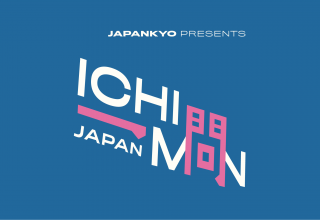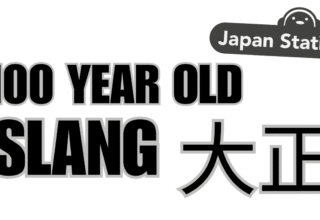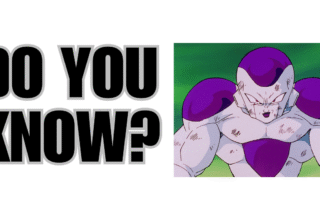
Today’s Question
On this episode of Ichimon Japan we ask: Does “hai” mean “bye” in Japanese?
Topics Discussed
- How most people that don’t speak Japanese would say “goodbye” in Japanese
- How sayonara/sayōnara is used fairly infrequently in Japanese
- Reasons why people in Japan tend not to use sayonara/sayōnara frequently
- The etymology of sayonara/sayōnara
- When the first written record of the term that would become sayonara dates to
- what the literal meaning of sayō dearu naraba is
- Common ways that people say “goodbye” in Japanese
- The usage of osaki ni shitsurei shimasu when leaving the workplace
- The literal meaning of osaki ni shitsurei shimasu
- The meaning of otsukaresama
- How friends in Japan miht say “goodbye” to each other
- The term baibai
- Ittekimasu and itterasshai
- Bubble-era Japanese slang
- The antiquated slang term baibī
- How baibī was translated into English when Pac-Man was localized for the U.S.
- What gyaru is
- Gyaru slang (gyarugo)
- Using baibaikīn to say goodbye
- All about Anpanman and Baikinman
- The massive popularity of Anpanman
- How Baikinman may be the first gyaru
- How “hai” can be used to end a verbal interaction (in other words say “goodbye”) in Japanese
- How many people incorrectly assume that “hai” simply means “yes”
- The misconception that “iie” is simply the Japanese equivalent of “no”
- The strange way in which “iie” and Japanese in general was used in the old Marvel comics featuring Wolverine in Japan
- Using hai as a way to signal that you are listening
- How misunderstanding hai can make answering negative questions in Japanese confusing
- The importance of learning things in context when you are studying a foreign language
- And much more!
Listen to Ichimon Japan on
Apple Podcasts Google Podcasts Stitcher Spotify iHeartRadio PodBean Tunein RSS
Support on Patreon
If you enjoy Ichimon Japan and want to ensure that we’re able to produce more episodes, then please consider becoming a patron on Patreon.com. For a minimum pledge of $2 a month you’ll get access to exclusive content and our eternal, profound, and undrying gratitude.
Sources, Links, Videos, Etc.
Here are some of the English-language articles that were used during the research for this episode.
- Sayonara: One of the Most Japanese Words in the Dictionary
- What does the word Hai actually mean in Japanese???
These are some of the Japanese-language articles used as sorces for this episode.
To listen to the latest episodes of the Japan Station podcast, use the links below.
- How I Became a Voice Actor in Japan (Reina 麗) | Japan Station 46
- Working & Teaching in Japan (James from The Inside Japan Podcast) | Japan Station 47
Japanese Vocabulary List
Most episodes feature at least one or two interesting Japanese words or phrases. Here’s some of the ones that came up on this episode. All information is from Jim Breen’s WWWJDIC.
- Sayōnara
- さようなら (int) farewell; adieu; goodbye; so long
- Kutabare
- くたばれ (exp) (vulg) (ktb:) drop dead!; go to hell!; fuck you!; shove it!
- Osaki ni shitsurei shimasu
- お先に失礼します 【おさきにしつれいします】 (exp) (used when leaving a workplace while others remain) pardon me for leaving (first)
- Otsukaresama
- お疲れ様 : お疲れ様(P); お疲れさま(P); 御疲れ様 【おつかれさま】 (exp) (1) thank you; many thanks; much appreciated; (2) that’s enough for today
- Ja ne
- じゃね (int) (fam) see you then; bye; ciao
- Baibai
- バイバイ (int) (1) bye-bye; good-bye; see you; so long; (n,vs) (2) saying goodbye; parting
- Ittekimasu
- いってき (int) (col) bye; see ya (afterwards); have fun; get going, now
- Itterashai
- いってらっしゃい (int) have a good day; take care; see you
- Mata na
- またね (exp) good-bye; see you later
- Baibī
- バイビー (int) (col) (See バイバイ・1) bye-bye; good-bye; see you; so long
- Gyaru
- ギャル (n) (1) gyaru (eng: gal); (young) woman adhering to a fashion trend usually marked by brown or blond-dyed hair, gaudy clothes and accessories; (2) gal
- Baikin
- 黴菌 : ばい菌(P); バイ菌; 黴菌 【ばいきん(ばい菌,黴菌)(P); バイきん(バイ菌)】 (n) (1) (col) germ; germs; bacteria; mold; mould; (2) (used figuratively) something harmful; vermin
- Kabi
- カビ : 黴 【かび(P); カビ】 (n) (uk) mold; mould; mildew; (P); 《verb stem》 カビる : 黴びる; 黴る 【かびる; カビる】 ; (v1,vi) (uk) to get moldy (mouldy); to get musty; to develop mildew
- Iya
- いや (int) (1) why; oh; (2) no!; quit it!; stop!
- Kya
- キャー : きゃっ; キャー; ぎゃあ; キャッ; きゃあ; ギャー; ぎゃっ; ギャッ (int) (1) (expressing surprise, pain, fear, or disgust) yikes!; eek!; ouch!; blech; (adv) (2) (きゃあ only) (on-mim) (monkey screech) ook; eek
We Want Your Questions
Is there something about Japan that confuses you? Is there something about Japanese culture that you would like to learn more about? Is there something in Japanese history that you would like us to explain? We’re always looking for new questions about Japan to answer, so if you have one, please send it to ichimon@japankyo.com.
Special Thanks
Opening/Closing Theme: Produced by Apol (YouTube, Twitter, Facebook, Fiverr)
Ichimon Japan cover art: Produced by Erik R.
Follow Japankyo on Social Media
Full Show Notes














